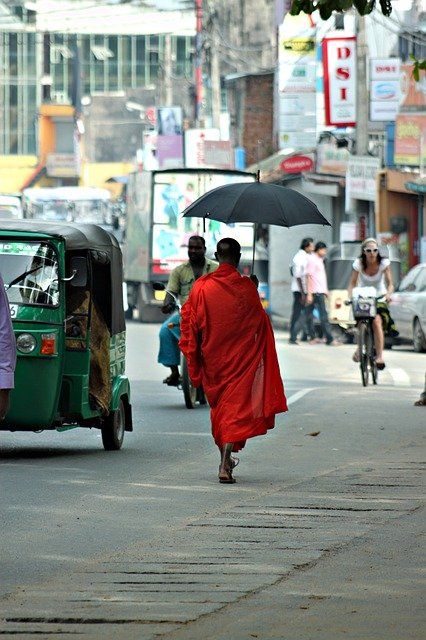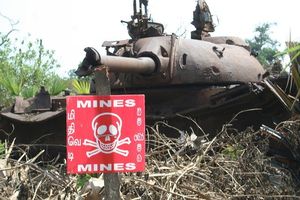Sri Lanka has a multi-ethnic society, comprised of Sinhalese, Tamils, Burghers and Malays. Protestant evangelical Christians amount to less than 1% of the total population. Serious ethnic conflict between the (mainly Buddhist) Sinhalese and (mainly Hindu) Tamil communities has continued for the past fifteen years. It has affected all areas of life. The continuing bloodshed, atrocities and injustices on the island have made people think seriously about the real meaning of life. ‘Is God really in control?’ is the question uppermost in many people’s minds.
Yes! He is in control and, through all its troubles, has been doing in this ‘paradise-island’ all that he intends to do. He never changes, for he still saves lost sinners in grace and mercy. Though many here from different religious backgrounds profess to believe in God, yet they can only know real peace and love in their lives through faith in God’s only Son, Jesus Christ.
Issues of eternity
It has been heartening to observe in the north-east of Sri Lanka, even in the midst of the civil war and its suffering, people are turning to Christ. Many there are preaching the gospel, and people are listening. Many who are not Christians have given up looking to man for his solutions, whether these solutions come from the government or the militants. The tragedies they face have made them consider issues of eternity. C. S. Lewis correctly said, ‘God whispers in our pleasure but shouts in our pain’. For example, a large number from the Gypsy community, whose earnings once depended on fortune telling and palmistry, and who were notorious for drunkenness and immorality, have come to know the Saviour, against the background of the troubles. God is sovereign, and he who is the source of all goodness can certainly bring good out of evil. Even those who are already believers in Christ are learning to trust God more simply for their daily provisions.

Buddhism not the answer
The Lord has been at work too in less traumatised areas of Sri Lanka. Buddhists have begun to realise that their religion, which is supposed to promote love and non-violence, is not the answer. The fact is that Sri Lanka is 70% Buddhist and yet it is in deep trouble. So some Buddhists have turned to Christ in spite of opposition from their priests.
However, churches in the war zones experience continual problems and difficulties. The writer knows of one church in Jaffna that has had to scatter three times due to the civil war, and is still unable to re-group. Another church has experienced the abduction and disappearance of its minister. Long-term planning for evangelism and church planting is impossible, because of the unpredictability of the situation. Poor transport systems hamper Christian mission. But God’s work has continued. Scattered and displaced Christians are meeting for worship in refugee camps or temporary homes. Although Christians are scattered, their faith in the true and eternal Saviour has not been shaken. They may sometimes be discouraged, but they find continuing supplies of grace in the One who loved them and died to save them from eternal judgement.
Not forsaken
Has God forsaken Sri Lanka? No, definitely not! Then why the continuing tragic events? It is because of man’s sinful depravity that we suffer, not because of God. He is the source of all kindness and goodness and can never be blamed. Only if our nation humbles itself, repenting of its violence, idolatry and pride, and trusts in Jesus Christ, who made a perfect atonement to reconcile elect sinners to a holy God, can it really enjoy peace with God and man, and everlasting joy and love.








